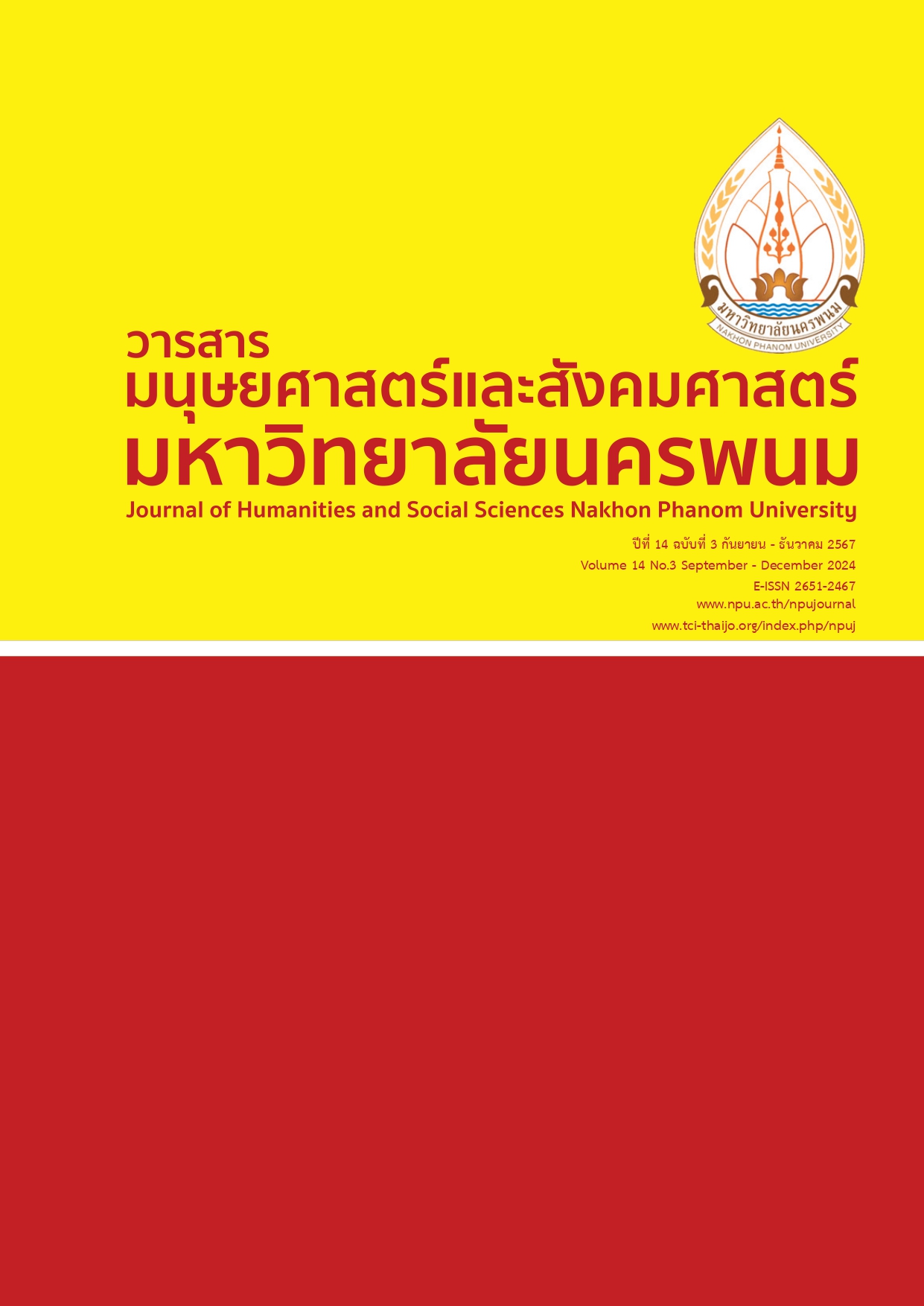Creating the Program Learning Outcomes in Accordance with the Outcome-Based Education (OBE): A Case Study of Master of Public Administration Program in Public Policy and Local Government Management Songkhla Rajabhat University
Main Article Content
Abstract
This research aimed to study program learning outcomes (PLOs) of the Master of Public Administration Program in Public Policy and Local Government Management using qualitative research methods. The stakeholders were identified as follows: 1) high influence and high impact stakeholders, consisting of thirteen government employers; 2) low influence and low impact stakeholders, consisting of six private employers; 3) low influence but high impact stakeholders, consisting of thirty-six academics and undergraduates; and 4) high influence but low impact stakeholders, consisting of the National Strategy (2018-2037), Policy and Strategy of Thailand HESI (2020-2027), Songkhla Province Development Plan (2023-2027), Songkhla Rajabhat University Development Strategy (2023-2027), Faculty of Humanities and Social Sciences Development Strategy (2023-2027), and sixteen administrators and instructors. The research tool was a semi-structured interview form. The data triangulation was used to check for accuracy and reliability. Data analysis used qualitative interpretation. The research results found that program learning outcomes (PLOs) were: PLO1: Relate concepts and theories of public administration as a basis for designing public policies; PLO2: Apply communication skills and tools or information technology through research process for public policy to expertly analyze local problems; PLO3: Design public policies to expertly manage local problems; PLO4: Integrate all the parts of knowledge to solve local problems under the principles of good governance; PLO5: Express being a moral and ethical person dedicated to the benefit of the local area; and PLO6: Create new knowledge in public administration through communication and information technology skills in designing public policies to solve local problems through a research process with morality and ethics.
Article Details

This work is licensed under a Creative Commons Attribution-NonCommercial-NoDerivatives 4.0 International License.
References
Chayapiwat, P. (2021). Problems in the Implementation of Government 4.0 Policy A Case Study of Local Administrative Organizations in the Three Southern Border Provinces of Thailand (Unpublished master’s thesis). Prince of Songkla University, Songkhla, Thailand.
Cheawjindakarn, B. (2018). Qualitative Case Study Research Techniques. Liberal Arts Review, 13(25),103-118.
Kaewbut, P. (2021). The Study of Chinese Curriculum Development in Accordance with the OBE guidelines : A Case study of Chinese for business communication program, Prince of Songkla University, Surat Thani Campus. Journal of Liberal Arts Prince of Songkla University, 13(1),236-264.
Kevany, S. (2020). Enabling the Sharing of Original, Timely and Creative Macro-and Micro-Level Response Concepts, Systems, and Ideas. Retrieved June 2023, from http://www.jstor.org/stable/resrep24869
Parinyasutinun, U. (2019). Public Policy and Bang Rieang Community : Reviewed Issues for Success and Sustainability of Policy Driving. Humanity and Social Science Journal, Ubon Ratchathani University, 10(1),91-120.
Prutipinyo, C., Pobkeeree, V., Sirichotiratana, N., Marneejamsai, P. & Kumboonsri, S. (2022).Guidelines for the Development of Graduate Programs in Public Health Administration. Journal of Council of Community Public Health, 4(3),12-21.
Rergchai, E. (2020). Implementation of the Coronavirus Disease 2019 Prevention Policy (COVID 19) A Case Study of Lam Sai Sub-District Administration Organization, Wangnoi District, Phra Nakhon Si Ayutthaya (Unpublished master’s independent study). Ramkhamhaeng University, Bangkok, Thailand.
The Commission on Higher Education Standards. (2022). Announcement of The Commission on Higher Education Standards : Details of Learning Outcomes as Qualifications Framework for Higher Education, 2022. Retrieved September 2022, from https://www.ops.go.th/th/ches-downloads/edu-standard/item/6940-2022-07-22-02-54-49


